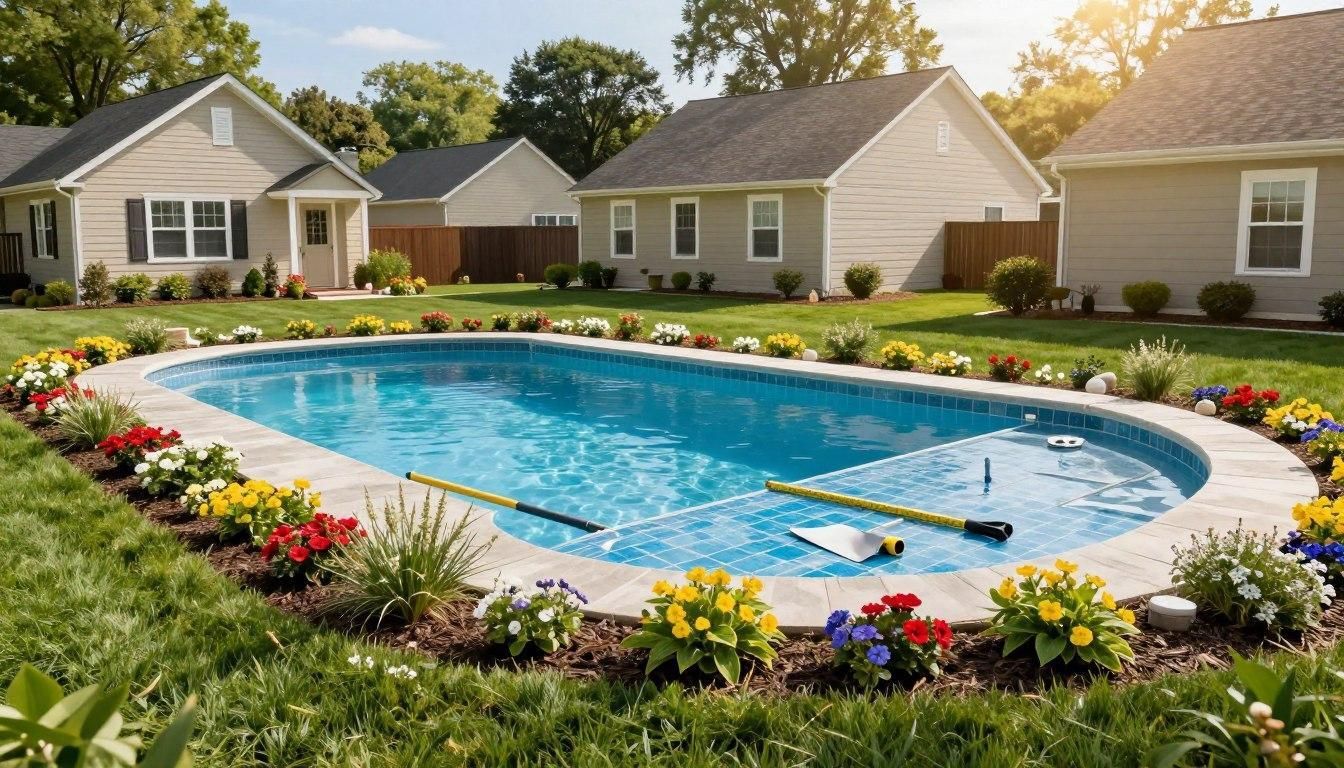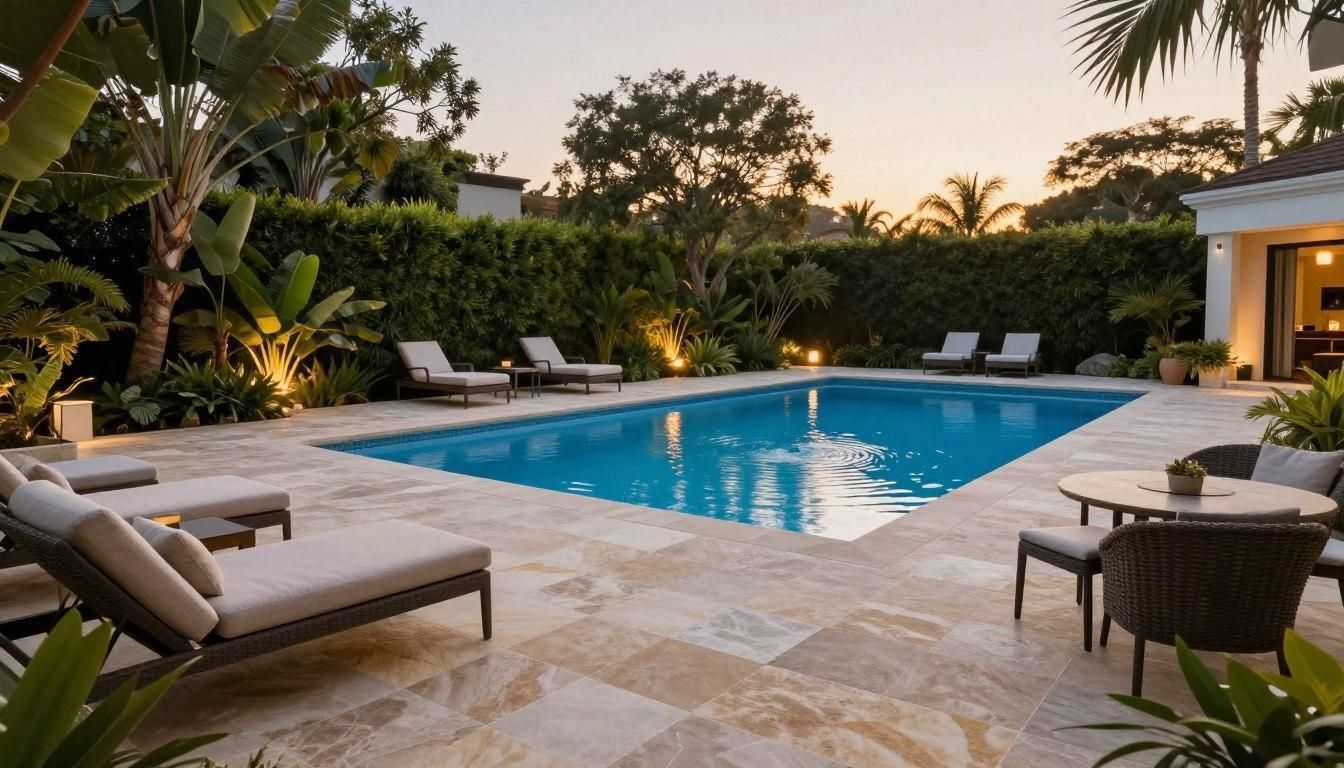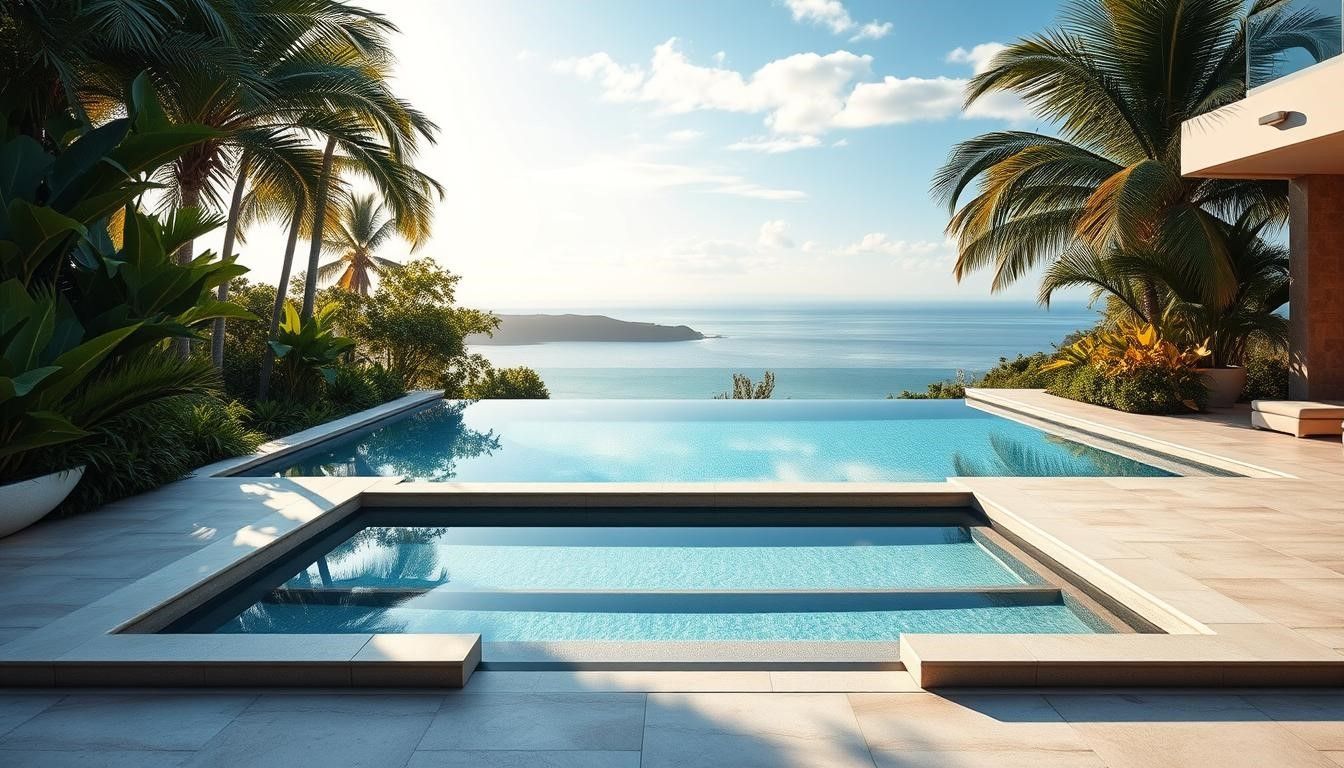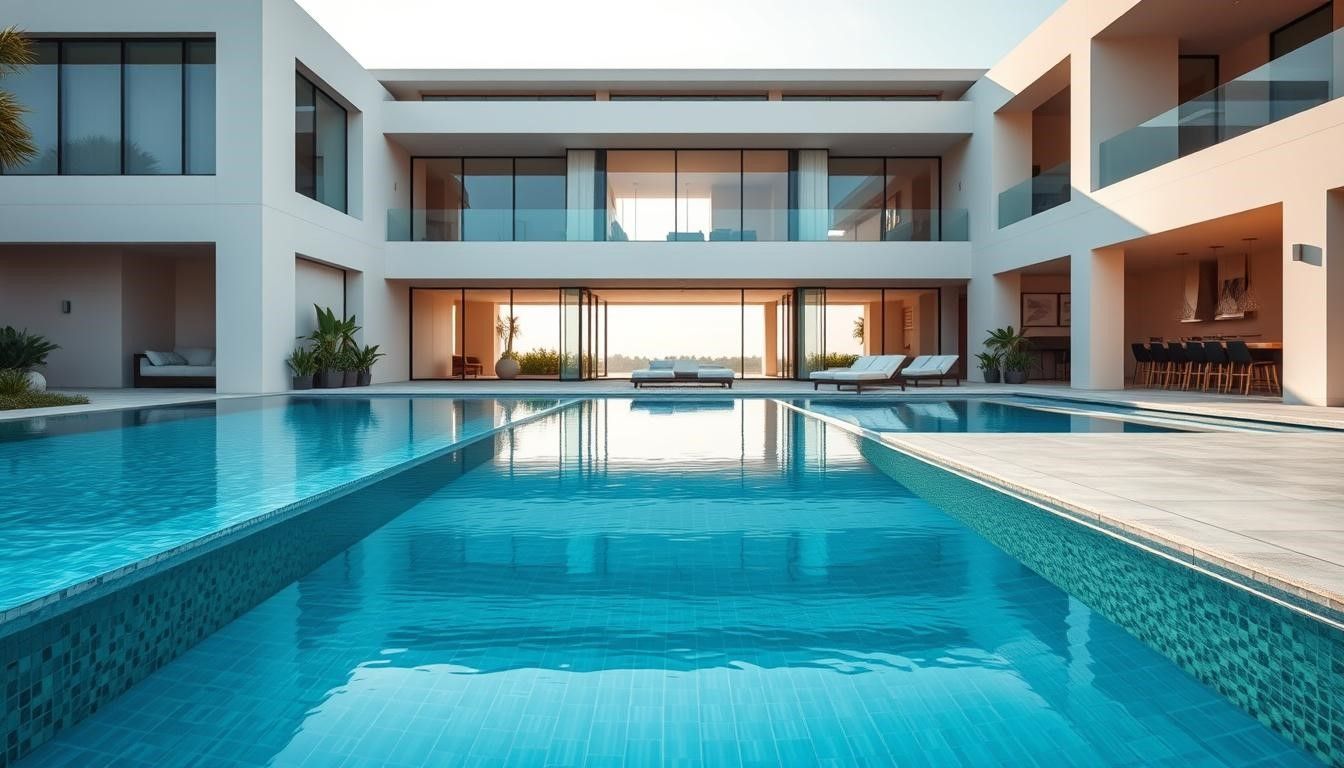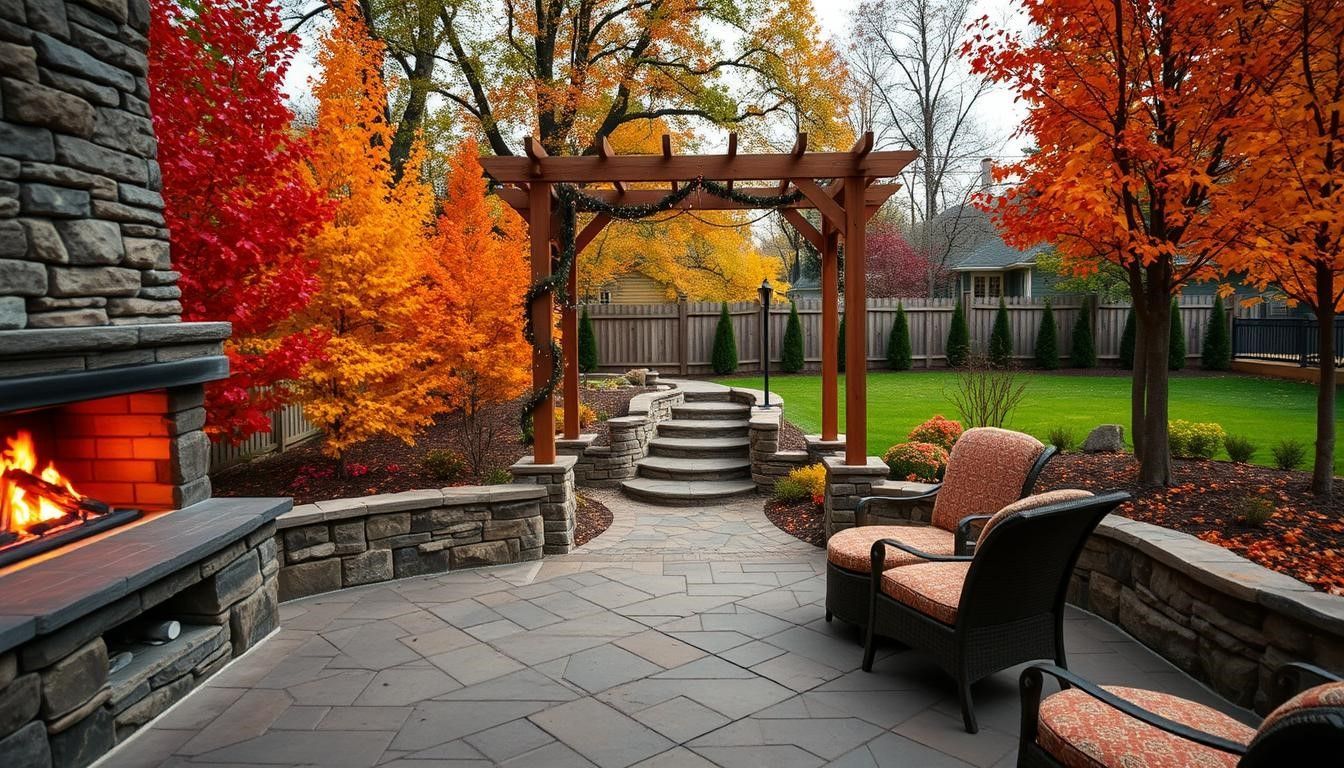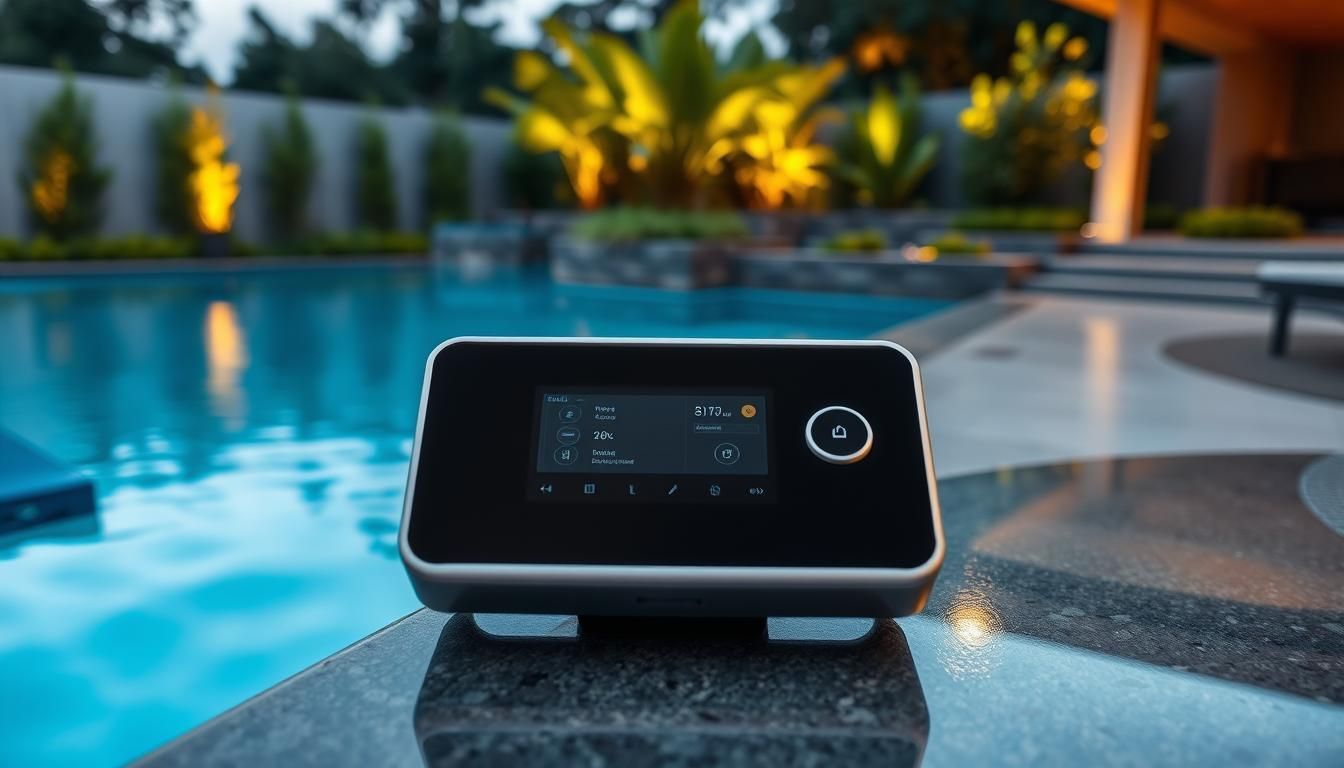A Guide to Pool Closing: Essential Steps for a Healthy Pool This Winter
Prepare your backyard for cold months with clear, practical steps. Proper closing protects against freeze damage and keeps water healthy so your swimming pool stays clean and ready for spring.
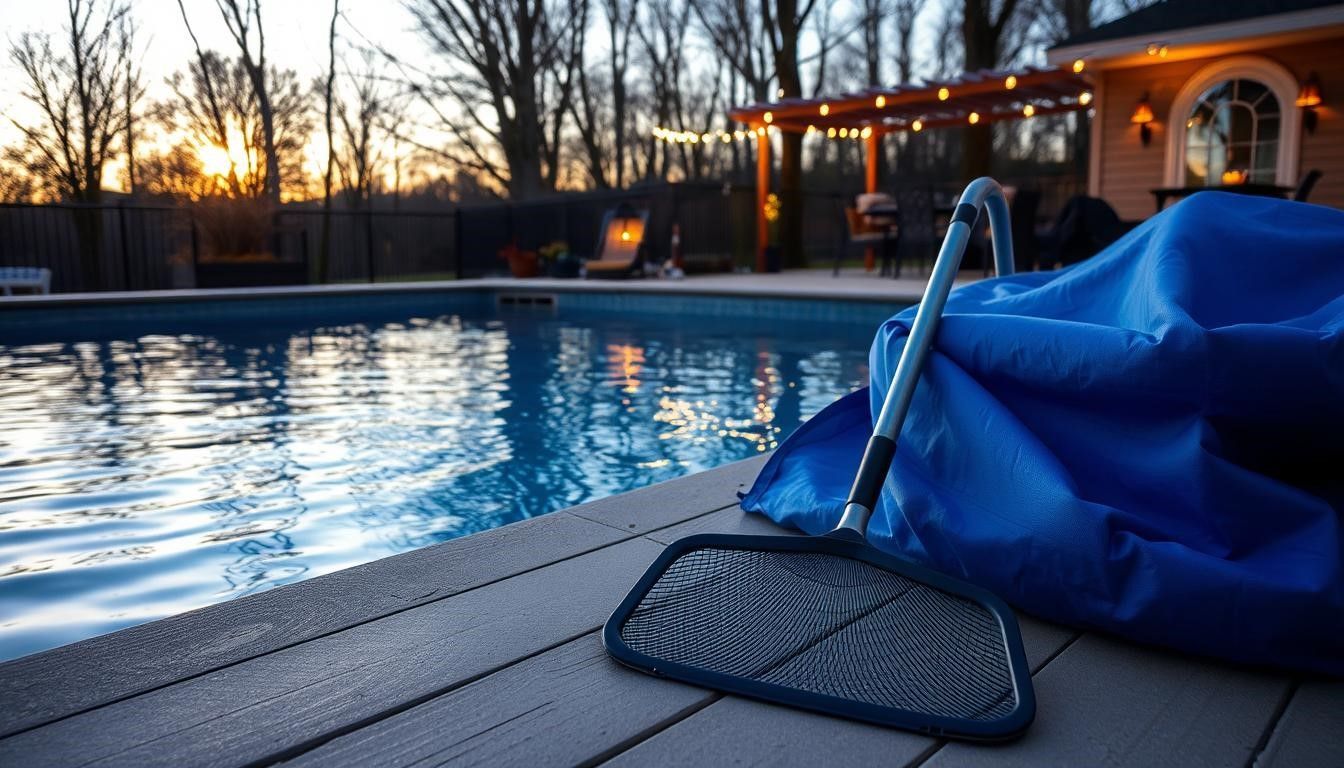
Standard work includes balancing water chemistry, adding winter chemicals, winterizing plumbing and equipment, and installing a secure cover. These measures prevent stains, scaling, and algae while reducing spring reopening time and costs.
Serene Pools NJ brings expert craftsmanship and a friendly, customer-first approach. Our team aims to protect your investment and simplify spring startup. Call 201-252-2151 to schedule before the first hard frost.
Key Takeaways
- Closing safeguards your swimming pool from freeze and limits offseason problems.
- Expect four core steps: balance water, add winter chemicals, winterize plumbing, and cover.
- A proper close lowers maintenance, stains, and reopening costs.
- Serene Pools NJ offers professional pool closing service with a customer-first focus.
- Book early in the season to secure your preferred date and avoid last-minute rush.
Why and When to Close Your Pool for Winter in Northern NJ
Timing your winter prep matters; the right moment protects equipment and simplifies spring reopening.
The purpose of winterization is simple: protect pumps, pipes, and other equipment, limit algae growth, and make the next season easier to open. Clean water and balanced chemistry reduce stains and scaling during cold months.
The best time to act
Plan to close when pool water cools to about 55°F and leaves begin to fall. That temperature and increased debris raise the risk of clogged filters and algae growth. Skim and vacuum before you close to keep the system from getting overwhelmed.
What happens if you delay
Waiting too long can cause freeze damage to exposed lines, cracked valves, and costly equipment repairs. Stubborn stains and heavy algae can lengthen spring opening and add extra maintenance costs.
"A few smart steps in autumn save hours and money in spring."
— Serene Pools NJ
| When | Action | Chemistry Target | Risk if Delayed |
|---|---|---|---|
| ~55°F & falling leaves | Skim, vacuum, shock a few days before | pH 7.2–7.6; chlorine 1–3 ppm | Clogged filter, algae growth |
| Before first hard freeze | Lower water, protect lines, fit cover | Stabilized levels for winter | Freeze damage, cracked lines |
| Early season planning | Schedule pros if unsure | Follow checklist | Higher reopening maintenance |
Quick tips: shock pool a few days before closing, let chlorine return to normal, and fit a well-sealed cover to cut debris and sunlight. For local guidance or to schedule with Serene Pools NJ, call 201-252-2151.
Pool closing service in Northern NJ: Serene Pools NJ’s step-by-step process
We follow a proven routine so your backyard stays safe and your system is ready for spring. Our crew handles chemistry, equipment, and the cover with care to reduce freeze damage and extra work later.
Pre-visit checklist:
- Vacuum and skim to remove debris; balance pool water and confirm power and water access.
- Shock pool a few days before and target pH 7.2–7.6 with chlorine at 1–3 ppm.
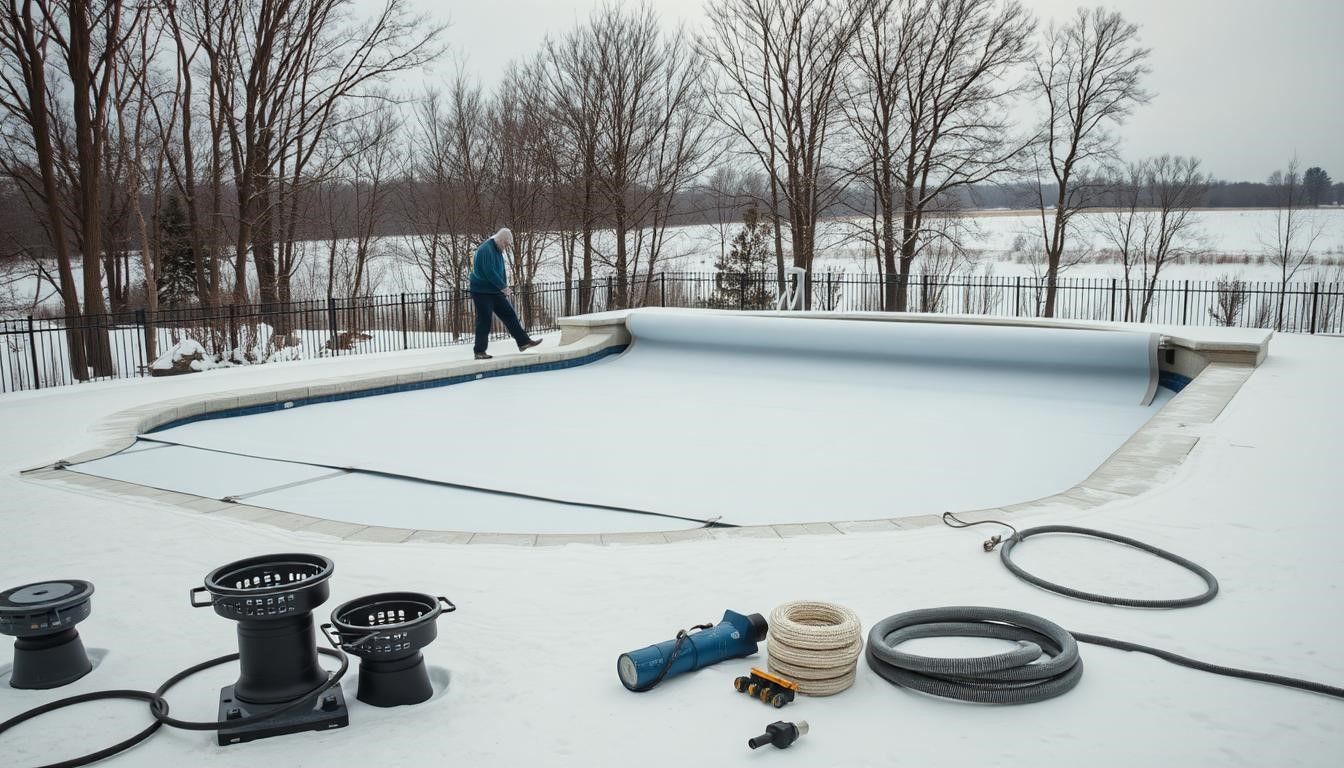
Winterize plumbing and equipment: blow out lines, add non-toxic antifreeze, remove drain plugs (check hidden heater plugs), and plug open lines to prevent freeze damage.
Clean or backwash filters and rinse cartridge elements. Protect the skimmer with a Gizzmo and shut off gas to the heater for code-conscious safety.
"A careful, documented close saves time and protects your investment through winter."
Final steps: lower water to winter level, remove ladders and handrails, then install a mesh or solid safety cover with straps, springs, stakes, or water bags. Verify fit and tension.
What we do next: winterize attached spa lines and pumps, document the process, and provide clear notes so your pool is pool closed and primed for an easier pool opening in spring. Call
201-252-2151 for pool closing services.
DIY vs. professional closing: Choosing the right pool care partner near you
Deciding whether to DIY or hire pros starts with an honest look at your skills and calendar.
When DIY can work
If you know your ground pool, have the right blower, plugs, and antifreeze, and you can set aside time, a DIY approach is possible.
Follow a strict checklist: remove debris, lower water to the correct winter level, test and add winter chemicals, and blow out lines. Missing a skimmer plug or heater valve step can cause costly damage.
Why hire Serene Pools NJ
Local expertise and full-service care speed the process and reduce risk. Our techs bring specialized tools to protect pump and heater lines, install a safety cover, and verify equipment is winter-ready.
We save you time and help ensure a smoother pool opening with documented work and friendly customer notes. Expect fewer surprises in spring.
- Make sure you evaluate schedule and weather windows.
- Pros handle cover fit, skimmer protection, and spa line prep.
- Call 201-252-2151 to compare DIY vs. pro options and get a convenient quote for pool closing services.
"A trusted local partner reduces risk and makes spring opening easier."
Conclusion
A well-timed, thorough winter prep keeps equipment safe and water cleaner until spring arrives.
Proper steps protect your investment: balance chemistry, add winter chemicals, blow out lines and add antifreeze, drain equipment and shut off gas, protect the skimmer, clean filters, set the winter water level, and verify a snug fit for the cover.
Serene Pools NJ brings the same high standards from design and build to seasonal care. Our friendly team follows a proven checklist so you save time and avoid freeze-related damage.
Ready to lock in peace of mind? Call Serene Pools NJ at 201-252-2151 for a quick quote and convenient scheduling for pool closing and related service.
FAQ
When is the best time to close my pool in Northern NJ?
Close your swimming pool when the water temperature drops to about 55°F and leaves begin to fall. This timing helps prevent algae growth and reduces the risk of freeze damage to the pump, filter, and heater.
What steps are included in a professional winterization process?
A complete winter procedure typically includes cleaning debris, balancing water chemistry (pH 7.2–7.6, chlorine 1–3 ppm), shocking the water, adding winter chemicals and algaecide, lowering the water to the proper level, blowing out plumbing, adding non-toxic antifreeze to lines, removing drain plugs, and installing a secure safety cover.
Can I close the pool myself, or should I hire a pro?
DIY closing can work if you have basic knowledge, the right tools, and time to follow each step carefully. Hire a professional if you want local expertise, reduced risk of equipment damage, full winter care (including filter and heater protection), and an easier opening in spring.
How do I prepare the pool water before covering it for winter?
Clean out leaves and debris, run the filter, backwash if needed, test and adjust pH and alkalinity, shock the water, and add recommended winter chemicals and algaecide to prevent stains and algae during the off-season.
What should I do with the pump, heater, and other equipment?
Turn off and drain equipment, remove drain plugs, blow out lines, add non-toxic antifreeze to pockets and lines if required, and store removable items like ladders and handrails indoors. Shut the gas to the heater and follow manufacturer instructions for winter care.
How do I choose between a mesh cover and a solid safety cover?
Mesh covers allow water to drain through and reduce ponding, while solid covers prevent light and minimize algae but need a cover pump for standing water. Pick a cover based on your yard drainage, safety needs, and whether you prefer less debris or less algae risk.
What are common problems from delaying winterization?
Delays can cause freeze damage to pipes and equipment, clogged filters from fallen leaves, scale and stains on the pool surface, increased algae growth, and expensive repairs at reopening.
Do I need to remove the skimmer and add plugs before winter?
Yes. Remove skimmer baskets, insert winter skimmer guards or plugs, and ensure faceplates and gaskets are secure. This prevents freeze damage inside the skimmer and plumbing lines.
Will closing chemicals affect my opening in spring?
Properly dosed winter chemicals and algaecide keep the pool stable and reduce cleanup time at opening. You may still need to test, balance, and shock the water, but a professional winterization reduces algae and staining risks so spring maintenance is smoother.
How long does a professional closing typically take?
A full closing usually takes one to three hours depending on pool size, condition, and equipment complexity. Services that include filter cleaning, line blowing, and cover installation may take a bit longer.
What additional steps are needed for a spa or hot tub?
For a spa, drain or properly winterize lines, clean and store filters, lower water below jets if required, add freeze protection where applicable, and secure the cover to prevent heat loss and debris intrusion.
How should I store pool accessories and chemicals over winter?
Store ladders, handrails, and small equipment indoors in a dry place. Keep chemicals in their original containers, sealed, and stored in a cool, dry, well-ventilated area away from direct sunlight and children. Follow label guidance for safe storage.
What maintenance is recommended during winter?
Check the cover monthly for debris and proper tension, remove heavy snow or standing water with a cover pump if needed, and inspect straps and anchors for wear. Keep an eye on the surrounding area for branches or hazards that could damage the cover.

